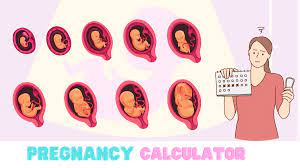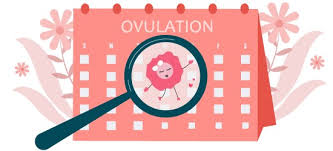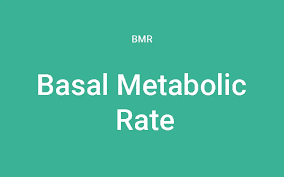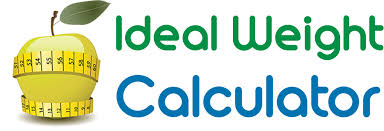If you’re expecting a baby, it can be overwhelming to keep track of your pregnancy timeline and all the changes happening in your body. Luckily, there are online tools available to help you stay on top of your pregnancy journey, such as the pregnancy timeline calculator which is also called pregnancy week calculator by lMP. By using this tool, you can estimate your due date, track your pregnancy week by week, and stay informed about important milestones and changes during your pregnancy.
[ez-toc]
Pregnancy Term & Due Date
Pregnancy is a beautiful experience, but it can be quite overwhelming, especially if you are a first-time mom. One of the most important aspects of pregnancy is understanding your due date and pregnancy term. In this article, we will explore the basics of pregnancy term and due date to help you navigate this exciting journey with ease.
Understanding Pregnancy Term
Pregnancy term refers to the length of time from the first day of your last menstrual period to the day your baby is born. It is measured in weeks and is typically 40 weeks in length. However, it is not uncommon for babies to arrive a few weeks before or after the due date.
The pregnancy term is divided into three trimesters. The first trimester spans from week 1 to week 12, the second trimester spans from week 13 to week 28, and the third trimester spans from week 29 until birth.
During each trimester, your baby goes through significant developmental changes. In the first trimester, your baby develops all of its major organs and structures, including the heart, brain, and limbs. In the second trimester, your baby’s organs continue to mature, and it begins to develop a layer of fat to regulate body temperature. In the third trimester, your baby’s lungs mature, and it gains weight in preparation for birth.
Understanding Due Date
Your due date is an estimated date when your baby is expected to be born. It is calculated by adding 280 days, or 40 weeks, to the first day of your last menstrual period. However, due dates are not always accurate, and babies are known to arrive a few weeks before or after the due date.
To determine your due date, your healthcare provider may use an ultrasound to measure the size of your baby, or they may calculate it based on the first day of your last menstrual period. Your due date is an essential tool for tracking your baby’s growth and ensuring that you receive the appropriate prenatal care.
Why is Knowing Your Due Date Important?
Knowing your due date is important for several reasons. Firstly, it helps you prepare for the arrival of your baby. You can plan for the necessary arrangements such as selecting a pediatrician, purchasing baby gear, and preparing your home for the baby’s arrival.
Secondly, it enables your healthcare provider to monitor your baby’s growth and development, ensuring that everything is progressing as it should. Your healthcare provider will schedule regular prenatal checkups, including ultrasounds and other tests to monitor your baby’s health.
Lastly, knowing your due date helps you prepare for labor and delivery. It gives you an idea of when to expect your baby’s arrival, allowing you to prepare yourself physically and emotionally for the experience.
In conclusion, understanding pregnancy term and due date is essential for ensuring a healthy pregnancy and delivery. Pregnancy term refers to the length of time from the first day of your last menstrual period to the day your baby is born, and it is divided into three trimesters. Your due date is an estimated date when your baby is expected to be born, and it helps you prepare for the arrival of your baby and monitor your baby’s growth and development. Remember, while due dates are not always accurate, they are an essential tool for tracking your baby’s progress and ensuring that you receive the appropriate prenatal care.
Basics of Pregnancy
Pregnancy is an exciting time filled with many changes and new experiences. It can also be overwhelming, especially for first-time parents. Understanding the basics of pregnancy can help you prepare for the journey ahead and ensure a healthy pregnancy. In this article, we will explore the basics of pregnancy, including what it is, how it occurs, and what to expect during each trimester.
What is Pregnancy?
Pregnancy is the process of carrying a developing embryo or fetus within the female body. It occurs when a sperm fertilizes an egg, usually in the fallopian tube. The fertilized egg then implants in the uterus, where it grows and develops into a baby.
How Does Pregnancy Occur?
Pregnancy occurs when a sperm fertilizes an egg during intercourse or other methods of fertilization. The fertilized egg then travels down the fallopian tube and implants in the uterus, where it begins to grow and develop. This process typically takes about 40 weeks and is divided into three trimesters.
Trimesters of Pregnancy
Pregnancy is divided into three trimesters, each with its own unique characteristics and milestones.
First Trimester (Week 1-12)
During the first trimester, the fertilized egg implants in the uterus, and the placenta begins to form. The embryo undergoes rapid development, and by week 12, it has all of its major organs and structures. Symptoms during the first trimester may include fatigue, morning sickness, and mood swings.
Second Trimester (Week 13-28)
During the second trimester, the fetus continues to develop, and the baby’s movements can be felt. The baby’s sex organs have formed, and it is possible to determine the gender. Symptoms during the second trimester may include heartburn, constipation, and stretch marks.
Third Trimester (Week 29-Birth)
During the third trimester, the baby focuses on preparing for birth. The baby gains weight rapidly and develops the ability to see and hear. Symptoms during the third trimester may include difficulty sleeping, back pain, and Braxton Hicks contractions.
Prenatal Care
Prenatal care is essential for a healthy pregnancy and delivery. Regular check-ups with your doctor or healthcare provider can help monitor the health of you and your baby, and identify and manage any potential complications. Prenatal care may include regular blood tests, ultrasounds, and other diagnostic tests to ensure a healthy pregnancy.
Understanding the basics of pregnancy is essential for a healthy pregnancy and delivery. Pregnancy occurs when a sperm fertilizes an egg, and the fertilized egg implants in the uterus. Pregnancy is divided into three trimesters, each with its own unique characteristics and milestones. Prenatal care is essential for a healthy pregnancy, and regular check-ups with your doctor or healthcare provider can help monitor the health of you and your baby.
Pregnancy Detection – Pregnancy Test
Pregnancy detection is the process of determining whether or not a woman is pregnant. While there are several signs and symptoms of pregnancy, the most reliable way to confirm pregnancy is through a pregnancy test. In this article, we will explore the basics of pregnancy detection and how you can determine if you’re expecting.
Signs and Symptoms of Pregnancy
There are several signs and symptoms that may indicate you are pregnant. These include missed periods, fatigue, nausea and vomiting, breast tenderness, frequent urination, and mood swings. However, these symptoms can also be caused by other factors, so they are not always a reliable indicator of pregnancy.
Pregnancy Test
A pregnancy test is the most reliable way to confirm pregnancy. These tests work by detecting the presence of human chorionic gonadotropin (hCG), a hormone produced by the placenta after a fertilized egg implants in the uterus. Pregnancy tests are available over-the-counter at drug stores, or you can take one at your doctor’s office.
There are two types of pregnancy tests: urine tests and blood tests. Urine tests are the most common type and can be taken at home or at a doctor’s office. They are easy to use, affordable, and provide quick results. Blood tests, on the other hand, are more sensitive and can detect pregnancy earlier than urine tests. However, they are more expensive and usually only done in a doctor’s office.
When to Take a Pregnancy Test
The best time to take a pregnancy test is after you have missed your period. This is when hCG levels are high enough to be detected by a pregnancy test. However, some tests are more sensitive and can detect pregnancy earlier than others. If you suspect you are pregnant but have not missed your period, you can take a test as early as one week after ovulation.
It’s important to follow the instructions on the pregnancy test carefully to ensure accurate results. If you are unsure about how to take a test or interpret the results, consult your doctor or a healthcare professional.
Pregnancy detection is an essential part of family planning and prenatal care. While there are several signs and symptoms of pregnancy, the most reliable way to confirm pregnancy is through a pregnancy test. Pregnancy tests are easy to use, affordable, and provide quick results.
Symptoms of Pregnancy: What Happens First
Pregnancy is an exciting and transformative journey for expectant parents. However, many people are unsure about what to expect during the early stages of pregnancy. In this article, we will explore the symptoms of pregnancy and what happens first.
What Happens First?
The first sign of pregnancy is typically a missed period. This occurs because the fertilized egg has implanted in the uterus and the body begins to produce the hormone human chorionic gonadotropin (hCG), which stops the menstrual cycle. However, not all missed periods are a sign of pregnancy, and other factors such as stress, weight gain or loss, and changes in birth control can also cause missed periods.
Early Symptoms of Pregnancy
In addition to a missed period, there are several other early symptoms of pregnancy that may occur. These symptoms can vary from person to person and may include:
Nausea and Vomiting: Morning sickness is a common early symptom of pregnancy, although it can occur at any time of the day. It typically begins around the sixth week of pregnancy and may last throughout the first trimester.
Fatigue: Pregnancy can cause feelings of exhaustion due to the body’s increased production of progesterone. This symptom can occur as early as the first week of pregnancy.
Breast Changes: Changes in breast size and tenderness can occur as early as the first few weeks of pregnancy. The breasts may feel heavy or sore, and the nipples may become more sensitive.
Mood Swings: Hormonal changes during pregnancy can cause mood swings and irritability. This symptom may occur as early as the first few weeks of pregnancy.
Food Cravings or Aversions: Pregnancy can cause changes in taste and smell, which can lead to food cravings or aversions. This symptom can occur as early as the first few weeks of pregnancy.
Spotting or Cramping: Some women may experience light spotting or cramping during the early stages of pregnancy. While this can be normal, it’s important to consult with a healthcare provider to rule out any potential complications.
Pregnancy is a transformative journey that begins with a missed period and several early symptoms. These symptoms can vary from person to person, and while some are mild, others can be more severe. If you suspect that you may be pregnant, it’s important to take a pregnancy test and consult with a healthcare provider. They can provide you with important information and guidance throughout your pregnancy journey.
Pregnancy Management
Pregnancy management is the process of taking care of yourself and your growing baby throughout your pregnancy. It involves several factors, including a healthy diet, exercise, prenatal care, and monitoring for potential complications. In this article, we will explore the basics of pregnancy management and how you can ensure a healthy pregnancy and delivery.
Healthy Diet
Eating a healthy, balanced diet is essential for the health of you and your baby. During pregnancy, it’s important to eat a variety of foods, including fruits, vegetables, whole grains, lean protein, and dairy products. You should also avoid certain foods, such as raw or undercooked meats, fish high in mercury, and unpasteurized dairy products.
In addition to eating a healthy diet, it’s important to take prenatal vitamins. Prenatal vitamins contain folic acid and other essential nutrients that help prevent birth defects and ensure a healthy pregnancy.
Exercise
Regular exercise is also important during pregnancy. It can help you maintain a healthy weight, reduce stress, and prepare your body for labor and delivery. However, it’s important to consult with your doctor before starting any exercise program and to avoid high-impact activities or exercises that may increase the risk of injury.
Prenatal Care
Regular prenatal care is essential for a healthy pregnancy and delivery. Prenatal care involves regular check-ups with your doctor or healthcare provider to monitor the health of you and your baby. Your healthcare provider will check your blood pressure, weight, and measure the growth of your baby. They may also perform ultrasounds and other tests to monitor your baby’s development and screen for potential complications.
Monitoring for Potential Complications
In addition to regular prenatal care, it’s important to monitor for potential complications during pregnancy. These may include gestational diabetes, preeclampsia, and preterm labor. Monitoring for potential complications may involve regular blood tests, urine tests, and other diagnostic tests to identify and manage any potential issues.
Pregnancy management is an essential part of ensuring a healthy pregnancy and delivery. It involves several factors, including a healthy diet, regular exercise, prenatal care, and monitoring for potential complications. Remember to eat a balanced diet, take prenatal vitamins, consult with your doctor before starting any exercise program, and attend regular prenatal check-ups.
Pregnancy Timeline
Understanding your baby’s development during each stage of pregnancy can help you prepare for their arrival and ensure a healthy pregnancy. In this article, we will explore the basics of the pregnancy timeline and how your baby develops throughout each trimester.
First Trimester (Week 1-12)
During the first trimester, your baby undergoes rapid development. In the first few weeks, the fertilized egg implants in the uterus, and the placenta begins to form. By week 4, your baby’s heart starts to beat, and the nervous system begins to develop. By week 8, your baby has all of its major organs and structures, and it is referred to as a fetus. By the end of the first trimester, your baby is about 3 inches long and weighs around 1 ounce.
Second Trimester (Week 13-28)
During the second trimester, your baby’s development continues at a rapid pace. By week 13, your baby’s sex organs have formed, and it is possible to determine the gender. By week 16, your baby’s movements can be felt, and it begins to develop a layer of fat to regulate body temperature. By week 20, your baby is about 6 inches long and weighs around 10 ounces. By week 24, your baby’s lungs are maturing, and it can survive outside the womb with medical assistance.
Third Trimester (Week 29-Birth)
During the third trimester, your baby’s development focuses on preparing for birth. By week 29, your baby’s eyes can open and close, and it can distinguish between light and dark. By week 32, your baby’s bones have hardened, and it is gaining weight rapidly. By week 36, your baby is about 18 inches long and weighs around 6 pounds. By the end of the third trimester, your baby is fully developed and ready for birth.
Understanding your baby’s development during each stage of pregnancy can help you prepare for their arrival and ensure a healthy pregnancy. During the first trimester, your baby undergoes rapid development, including the formation of major organs and structures. During the second trimester, your baby continues to grow and develop, with the development of a layer of fat and the ability to survive outside the womb. During the third trimester, your baby focuses on preparing for birth, including gaining weight and developing the ability to see and hear. Remember to attend regular prenatal check-ups and consult with your doctor or healthcare professional if you have any concerns about your pregnancy or your baby’s development.
pregnancy weekwise lmportant Milestones
As your baby grows and develops, there are important milestones and changes that occur each week. Understanding these milestones can help you track your baby’s development and ensure a healthy pregnancy. In this article, we will explore the important milestones of pregnancy weekwise.
Week 1-4
During the first week of pregnancy, conception occurs when the sperm fertilizes the egg. The fertilized egg travels down the fallopian tube and implants in the uterus, marking the beginning of pregnancy. By week 4, the embryo is about the size of a poppy seed and begins to develop its major organs and structures, including the heart, brain, and spinal cord.
Week 5-8
By week 5, your baby’s heart begins to beat, and blood starts to circulate. By week 8, your baby has all of its major organs and structures, and it is referred to as a fetus. The arms and legs begin to form, and the fingers and toes appear. The nervous system begins to develop, and the baby begins to move and respond to touch.
Week 9-12
By week 9, your baby’s face begins to take shape, and the eyes and ears become more defined. The bones begin to form, and the baby’s muscles begin to contract, allowing for movement. By week 12, the baby is about the size of a lime, and it can open and close its fingers and toes. The digestive system begins to develop, and the baby starts to produce urine.
Week 13-16
By week 13, your baby’s sex organs have formed, and it is possible to determine the gender. The baby’s movements can be felt, and it begins to develop a layer of fat to regulate body temperature. By week 16, the baby is about the size of an avocado, and it can make facial expressions and hear sounds from outside the womb.
Week 17-20
By week 17, your baby’s skeleton is becoming harder, and it is developing reflexes, such as sucking and swallowing. By week 20, your baby is about the size of a banana, and it can recognize your voice and respond to light. The baby’s lungs are maturing, and it can survive outside the womb with medical assistance.
Week 21-24
By week 21, your baby is about the size of a carrot, and it can taste and smell. The baby’s movements become more coordinated, and it begins to develop a regular sleep-wake cycle. By week 24, the baby is about the size of an ear of corn, and its lungs are maturing. It can hear and recognize voices, and it has a chance of survival outside the womb with intensive medical care.
Week 25-28
By week 25, your baby’s brain is developing rapidly, and it is developing more distinct facial features. By week 28, your baby is about the size of an eggplant, and it is gaining weight rapidly. The baby’s eyes can open and close, and it can distinguish between light and dark. The baby’s immune system is developing, and it is becoming more active.
Week 29-32
By week 29, your baby is about the size of a butternut squash, and it can recognize your voice and respond to touch. By week 32, the baby is about the size of a squash, and its bones have hardened. The baby is gaining weight rapidly, and it is preparing for birth.
Week 33-36
By week 33, your baby is about the size of a pineapple, and it is practicing breathing movements. The baby
‘s skin is becoming smoother, and it is filling out with more fat. By week 36, the baby is about the size of a honeydew melon, and it is gaining weight rapidly. Its lungs are fully developed, and it is ready for birth.
Week 37-40+
By week 37, your baby is considered full-term, and it is preparing for birth. The baby is gaining about half an ounce per day, and it may have already dropped into position for delivery. By week 40+, your baby can arrive at any moment. The baby is fully developed, and it is waiting for the signal to begin the journey into the world.
Understanding the important milestones of pregnancy weekwise can help you track your baby’s development and ensure a healthy pregnancy. From the first weeks of rapid development to the final stages of preparation for birth, each week brings new changes and growth for your baby. Remember to attend regular prenatal check-ups and consult with your doctor or healthcare professional if you have any concerns about your pregnancy or your baby’s development.

FAQ
How long does pregnancy last?
Pregnancy lasts about 40 weeks or nine months.
What is morning sickness?
Morning sickness is a common symptom of pregnancy that is characterized by nausea and vomiting. It can occur at any time of the day and typically begins around the sixth week of pregnancy.
When should I start prenatal care?
It’s recommended to start prenatal care as soon as you suspect that you’re pregnant. Your healthcare provider can give you important information and guidance throughout your pregnancy journey.
Can I exercise during pregnancy?
Yes, exercise is generally safe during pregnancy. However, it’s important to consult with your healthcare provider before starting any new exercise routine.
What is a due date?
A due date is the estimated date of delivery of your baby. It’s calculated based on the first day of your last menstrual period.
Can I continue to work during pregnancy?
Yes, most women can continue to work during pregnancy. However, if your job involves physical labor or exposure to harmful substances, you may need to make adjustments or take time off.
Can I travel during pregnancy?
Yes, it’s generally safe to travel during pregnancy. However, it’s important to consult with your healthcare provider before traveling, especially if you’re traveling internationally or have a high-risk pregnancy.
What is a high-risk pregnancy?
A high-risk pregnancy is one that has a greater chance of complications due to factors such as age, medical history, or pre-existing health conditions.
What is a cesarean section?
A cesarean section, or c-section, is a surgical procedure used to deliver a baby through an incision in the abdomen and uterus. It’s typically done when vaginal delivery is not possible or safe for the mother or baby.
Can I have sex during pregnancy?
Yes, most women can have sex during pregnancy. However, it’s important to consult with your healthcare provider if you have any concerns or complications.
What is a mucus plug?
A mucus plug is a thick, sticky substance that forms in the cervix during pregnancy. It helps to protect the baby from infection and bacteria.
How much weight should I gain during pregnancy?
The amount of weight you should gain during pregnancy depends on your pre-pregnancy weight and body mass index (BMI). In general, women with a healthy weight should gain between 25-35 pounds during pregnancy. However, women with a BMI that falls outside of the healthy range may need to gain more or less weight.
What should I eat during pregnancy?
A healthy diet during pregnancy should include a variety of nutrient-dense foods such as fruits, vegetables, whole grains, lean proteins, and healthy fats. It’s also important to avoid certain foods that can be harmful to the baby, such as raw or undercooked meats, seafood, and eggs, as well as unpasteurized dairy products.
What are Braxton Hicks contractions?
Braxton Hicks contractions are also known as “false labor.” They are mild contractions that occur sporadically throughout pregnancy, but can become more frequent during the third trimester. Unlike true labor contractions, Braxton Hicks contractions are typically painless and don’t lead to the birth of the baby.
What is gestational diabetes?
Gestational diabetes is a type of diabetes that develops during pregnancy. It’s caused by hormonal changes that affect the way the body uses insulin. Gestational diabetes can increase the risk of complications for both the mother and baby, but can be managed with proper medical care and lifestyle changes.
Can I breastfeed after a c-section?
Yes, women can breastfeed after a c-section. However, it may take a little longer for milk production to start due to the hormonal changes associated with c-section surgery. Women who have had a c-section may also need to adjust their breastfeeding position to avoid putting pressure on the incision site.
Can I still get my period during pregnancy?
No, it’s not possible to have a normal period during pregnancy. However, some women may experience light spotting or bleeding during pregnancy, which can be normal.
How often should I see my healthcare provider during pregnancy?
It’s recommended to see your healthcare provider for prenatal care about once a month during the first and second trimesters, and then more frequently during the third trimester. Your healthcare provider can give you personalized guidance on how often you should be seen based on your specific needs.
What is a miscarriage?
A miscarriage is the loss of a pregnancy before 20 weeks gestation. Miscarriages are common, occurring in about 10-20% of all pregnancies.
What is preeclampsia?
Preeclampsia is a serious pregnancy complication characterized by high blood pressure and damage to organs, such as the liver and kidneys. It typically occurs after 20 weeks of pregnancy and can be life-threatening if left untreated.
What is postpartum depression?
Postpartum depression is a type of depression that occurs after giving birth. It’s estimated to affect about 1 in 8 women and can cause symptoms such as mood swings, anxiety, and feelings of sadness or hopelessness.
Pregnancy Timeline Calculator: How to Use It and What to Expect
Pregnancy is an exciting time in a woman’s life, but it can also be overwhelming. With so many changes happening in your body, it can be difficult to keep track of what’s happening and when. Fortunately, there are tools available to help you stay on top of your pregnancy timeline. One such tool is the pregnancy timeline calculator.
What Is a Pregnancy Timeline Calculator?
A pregnancy timeline calculator is an online tool that helps you determine your due date and track your pregnancy week by week. It uses your last menstrual period (LMP) to estimate your due date and provides a detailed timeline of your pregnancy, including important milestones like when your baby’s heart begins to beat and when you’ll start to feel fetal movement.
How to Use a Pregnancy Timeline Calculator
Using a pregnancy timeline calculator is easy. Simply enter the date of your last menstrual period and the calculator will estimate your due date. From there, it will provide a detailed timeline of your pregnancy, broken down by week.
It’s important to keep in mind that the due date provided by the calculator is an estimate and may not be 100% accurate. Your baby may arrive a few days before or after your due date, and it’s perfectly normal for babies to be born anywhere from 37 to 42 weeks gestation.
Benefits of Using a Pregnancy Timeline Calculator
Using a pregnancy timeline calculator can provide a number of benefits. First and foremost, it can help you stay on top of your pregnancy timeline and ensure that you’re aware of important milestones throughout your pregnancy.
In addition, using a pregnancy timeline calculator can help you prepare for your baby’s arrival. Knowing your due date can help you plan for maternity leave, make arrangements for childcare, and ensure that you have all the necessary supplies and equipment ready for when your baby arrives.
Pregnancy Week Calculator by LMP
Another tool that can be helpful during pregnancy is the pregnancy week calculator by LMP. This calculator works similarly to the pregnancy timeline calculator, but instead of providing a detailed timeline of your pregnancy, it focuses on your current week of pregnancy.
To use the pregnancy week calculator by LMP, simply enter the date of your last menstrual period and the calculator will tell you what week of pregnancy you’re currently in. It will also provide information about what’s happening during that week of pregnancy and what to expect.
Benefits of Using a Pregnancy Week Calculator by LMP
Using a pregnancy week calculator by LMP can provide a number of benefits as well. It can help you stay on track with your pregnancy, ensure that you’re aware of important developments and changes happening in your body, and help you prepare for what’s to come.
In addition, using a pregnancy week calculator by LMP can be helpful for communicating with your healthcare provider. Knowing what week of pregnancy you’re in can help your provider determine what tests and screenings you may need and ensure that you’re receiving the appropriate care throughout your pregnancy.
Pregnancy can be an exciting and overwhelming time, but using tools like the pregnancy timeline calculator and pregnancy week calculator by LMP can help you stay on top of your pregnancy and prepare for your baby’s arrival. By using these tools, you can ensure that you’re aware of important milestones and changes throughout your pregnancy, and that you’re receiving the appropriate care from your healthcare provider.





